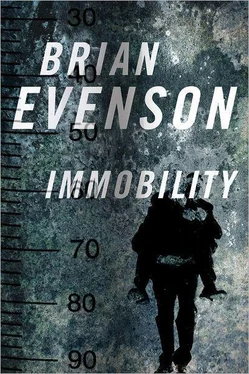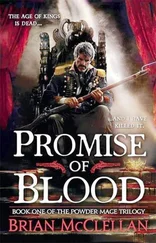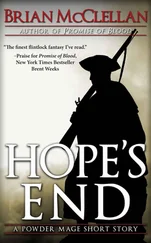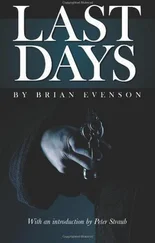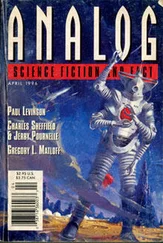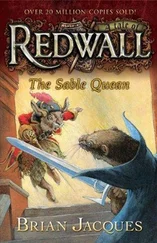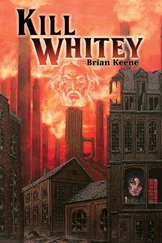Horkai slowly pulled himself over the threshold of the door and inside, the man stepping a little to one side to let him enter. On the other side was a small office, four desks in all. On the wall were the door controls and a small screen showing what the camera was seeing just outside the door. A track pad for moving the camera was beside it. The office itself was lit by a battery of long-stalked LED bundles making up a lamp in the middle of the floor. It gave the room a stark and unearthly pale glow. The lamp, Horkai saw, had a hand crank to charge it. On the far side of the room was the opening of another hall.
“You look exhausted,” said the man.
“I am,” said Horkai.
“You’re lucky I thought I heard something,” said the man. “If I hadn’t and you hadn’t moved into the camera’s range when you did, I wouldn’t have checked again until morning.”
The man pulled the door closed by a handle on the inside, then used the wall switch to trigger the door lock.
He came back over to stand above Horkai, shaking his head.
“No, no, no,” he said. “It just won’t do. But if I’m not mistaken.” And then, lifting a finger, he turned on his heel. He plucked at one of the light bundles in the lamp and it came free, battery and all, the end of the bundle still glowing. He walked briskly across the office and down the hall on the other end. This, Horkai glimpsed briefly in the light cast by this makeshift flashlight, was lined with row upon row of metal cabinets. He watched the light slowly fade down the hall until it was gone.
Horkai pulled himself over to a chair and then, with great effort, managed to climb into it without tipping it over. From there, he regarded the room. On each desk was an old computer covered in plastic, the plastic dusty enough that it was clear it had been years since any of the computers had been used. He opened the drawers of the desk he was sitting at, found them empty except for a nub of pencil, its tip broken off, and a key chain with no keys on it. The key chain had a representation of a golden figure blowing a trumpet on it, the words FLIRT TO CONVERT etched below.
Flirt to convert what? he thought. What could it possibly mean? The golden figure above the words made him wonder if he’d stumbled upon a relic from some sort of alchemical cult, a Midas cult interested in converting flesh into gold. But that was crazy, wasn’t it? And why flirt ?
And this place, he wondered, looking around, what was it before? Storage of some kind obviously, but for what?
He heard a distant clattering noise and a moment later saw light bobbing up the corridor and toward him. The man was pushing something in front of him that gradually resolved from the darkness to become a wheelchair.
“I thought we had one, and I was right,” the man said, resocketing the bundle in the lamp. “It’s just been sitting back there in storage, but now it has come in handy. Shall we?”
He helped Horkai slide out of the chair and into the wheelchair, making little encouraging but inane comments the whole while. When he realized Horkai was looking at him strangely, he apologized.
“You’ll have to forgive me,” he said. “It’s been a long time since I’ve had anyone to talk to.”
Horkai nodded.
“Now you’ll be able to move around on your own power,” the man said. “Or I can push you if you’d rather. Maybe a little bit of both?” The man stopped speaking, narrowed his eyes. “By the way,” he said, “how did you manage to get here? Surely you didn’t crawl the whole way?”
“Of course not,” said Horkai quickly. “I had a wheelchair,” he said, “but it broke down.”
“Where?”
“Not far from here. Maybe a quarter mile back.”
“You’re still on miles, are you? We thought the ones left alive might have switched to metric by now. Apparently not. I’ll go fetch your other wheelchair in the morning,” he said, “see if it can’t be fixed. Must have been hard going, considering the condition of the roads. I’m surprised you could make it at all. Did you see my plants, by the way?”
Horkai nodded.
“How are they doing?” the man asked. “But excuse me,” he said, “we haven’t been introduced. Mahonri, same spelling as the prophet, the one who saw the finger of God. And you are?”
“Josef Horkai,” said Horkai.
Mahonri gave him a bemused look. “Strange name,” he said. “Who are you named after?”
“I don’t know,” said Horkai. “I’m not sure I’m named after anyone.”
“That’s odd,” said Mahonri. “Here, all of us are named after someone from the Scriptures. You look like us: why aren’t you? Shall I give you a new name?”
“You asked earlier about your plants,” said Horkai. “They’re fine.”
“Splendid,” said Mahonri. “I’m glad to hear it. Best effort so far: they’re still alive.”
“The others have died?”
“Of course,” said Mahonri. “These will die as well, it’s inevitable, but they’re doing better than the last batch. Of course I cheated a little: I started growing them inside.”
“Why do you plant them if you know they’re going to die?”
“Because someday they won’t die,” said Mahonri. “And to measure how safe it is outside. It’s getting safer for humans. A little safer all the time,” he said. “But I’m forgetting my manners,” he added. “You don’t want to stay out here in the office all night, do you? Shall we go somewhere more comfortable?”
Without waiting for an answer, he plucked another light bundle from the lamp and started back down the hall. Horkai fumbled getting the wheelchair turned around and maneuvering it through the desks, but after a moment was following him down into the hall.
Only it wasn’t a hall exactly, he realized once he was in it. It was a vault: crossing through the door, he could see rows of cabinets stretching to either side of him, dozens of rows, maybe more. The one Mahonri took him down was just big enough for his wheelchair; he kept clipping the handles of the lower cabinets, which were hard to see in the near dark. The row seemed to go on for dozens and dozens of yards. He hurried as quickly as he could, trying to catch up.
But Mahonri had stopped, was waiting for him, weirdly lit by the makeshift flashlight he was carrying.
“Incidentally,” he said, “how did you know to come here? Did one of us recruit you?”
“I didn’t know,” said Horkai, realizing he was out of breath. “I just saw that someone had started painting the street signs again and decided to find out who.”
“That was me,” said Mahonri proudly.
“And then I saw from the road the arch of one of the openings. “It seemed as good a place as any to go for shelter. It was just luck that brought me.”
“It wasn’t luck,” said Mahonri. “It was God. Look at you. You are our brother, you belong here. God led you here to help us do His work.”
Not knowing what to say, Horkai said nothing, trying keep his face as neutral as possible. This seemed to be enough for Mahonri for the time being; he gave a curt smile and turned on his heel, starting down the row again.
They came to a break in the row, a cross-passage that would allow movement to another row. They crossed the break, continued straight on.
“What is in these?” asked Horkai, more as a way to slow Mahonri down than out of any real curiosity.
“Records,” said Mahonri. He stopped, turned around. “What we have here is the history of the human race, a record of births and deaths for hundreds and hundreds of years.”
“Why?” asked Horkai.
“What do you mean, why?” Mahonri responded. “Humanity is important. All these things must be preserved so that, when the time comes, humanity shall know what it has been, is, and will be.”
Читать дальше
